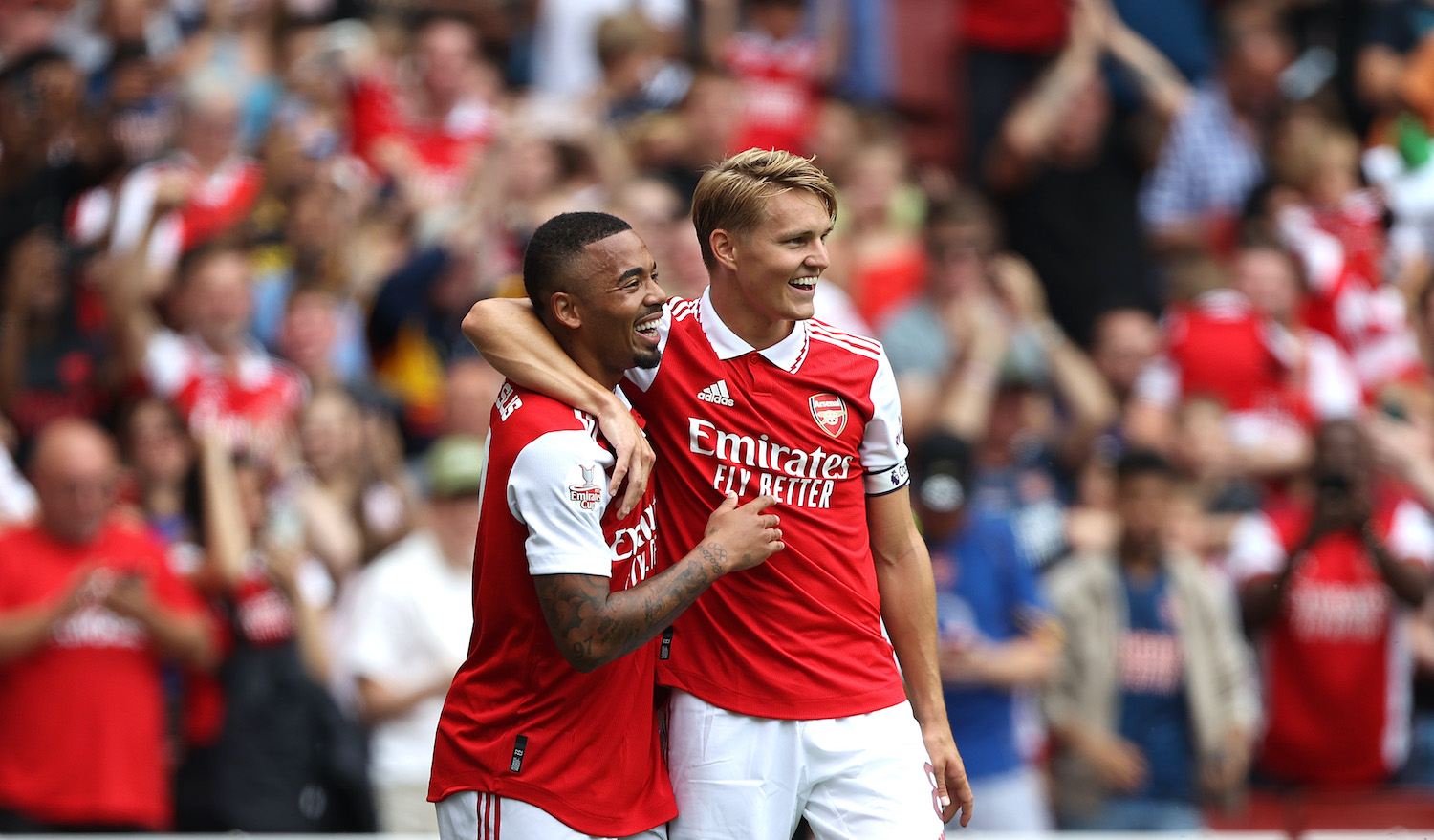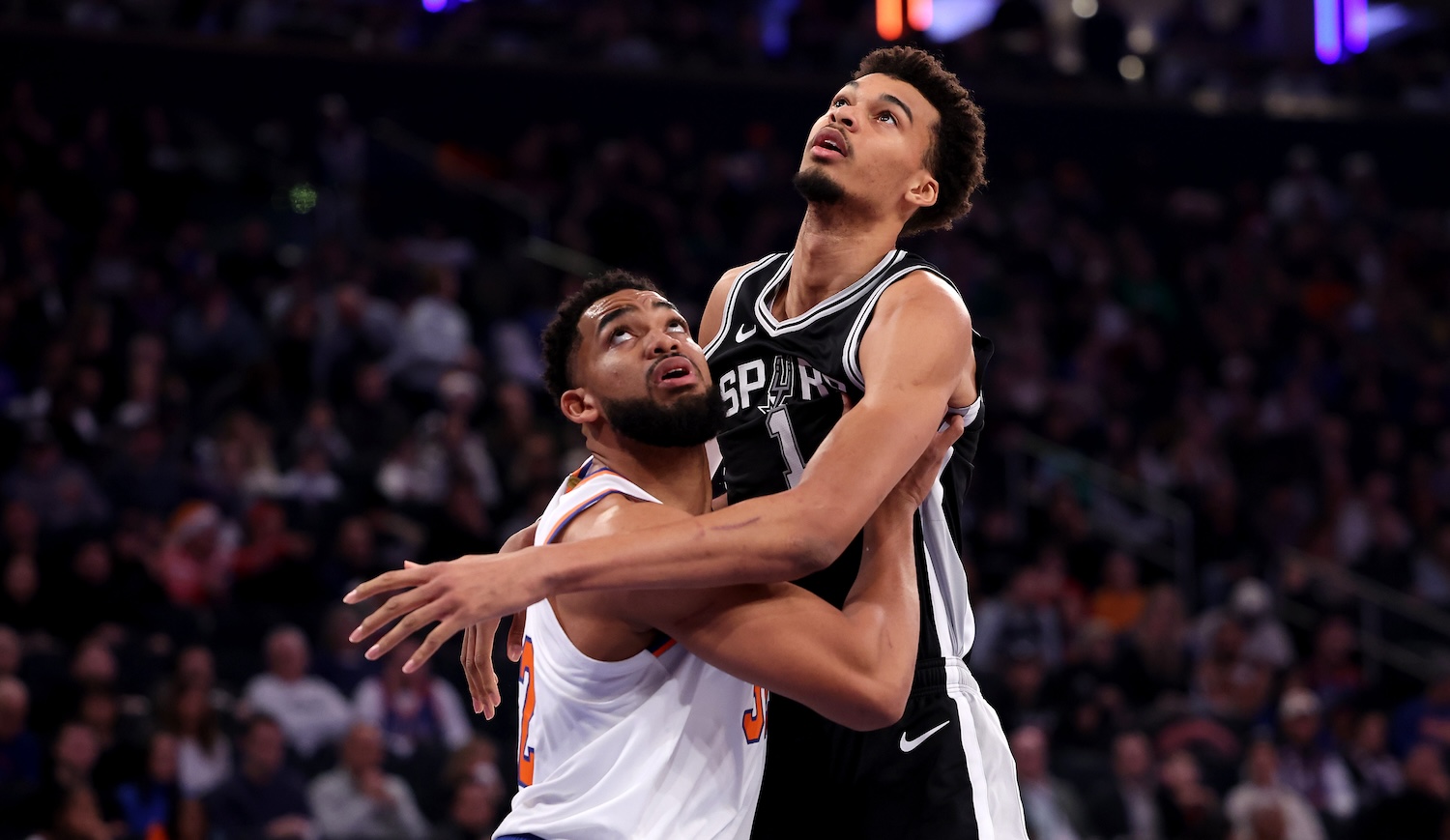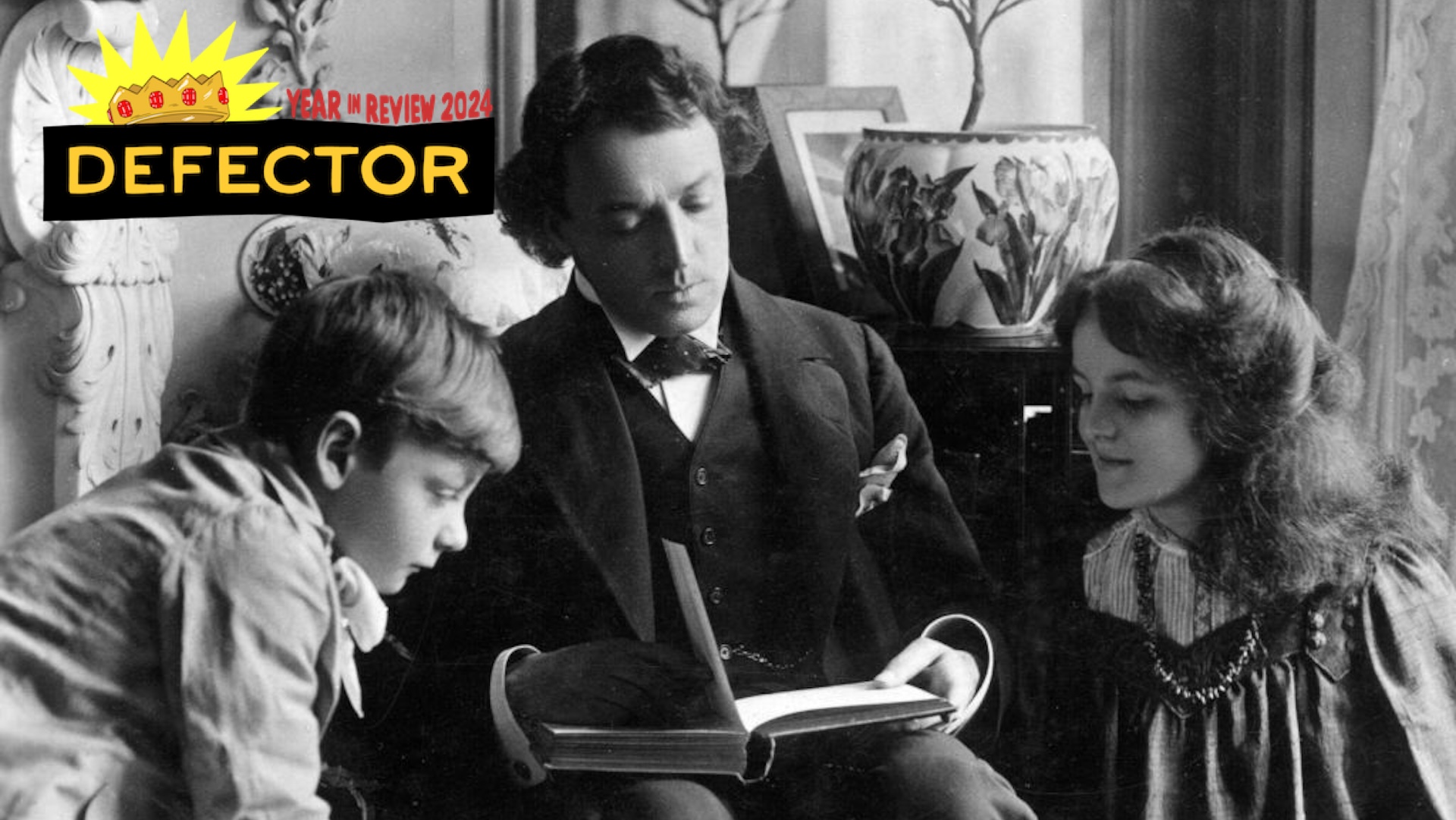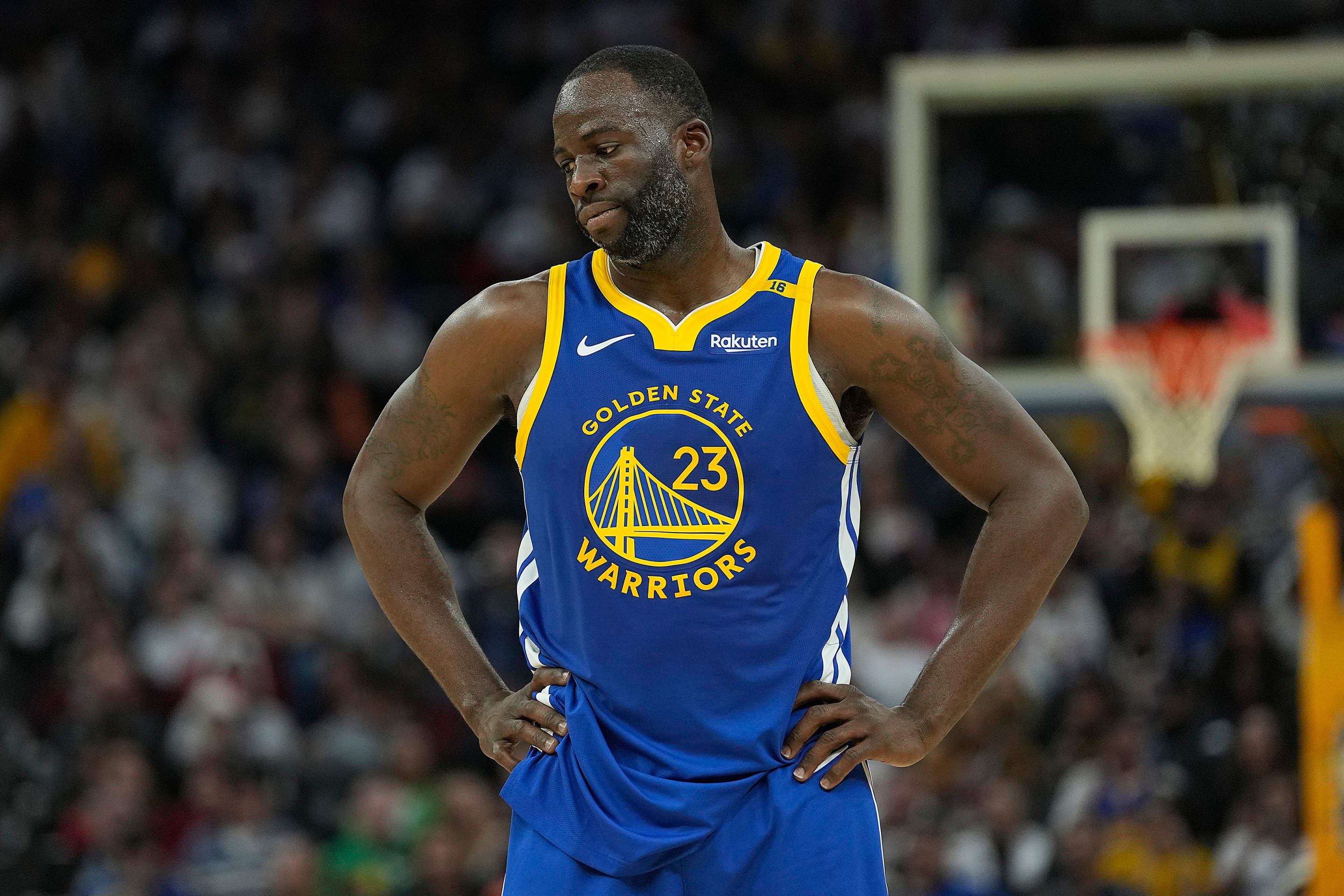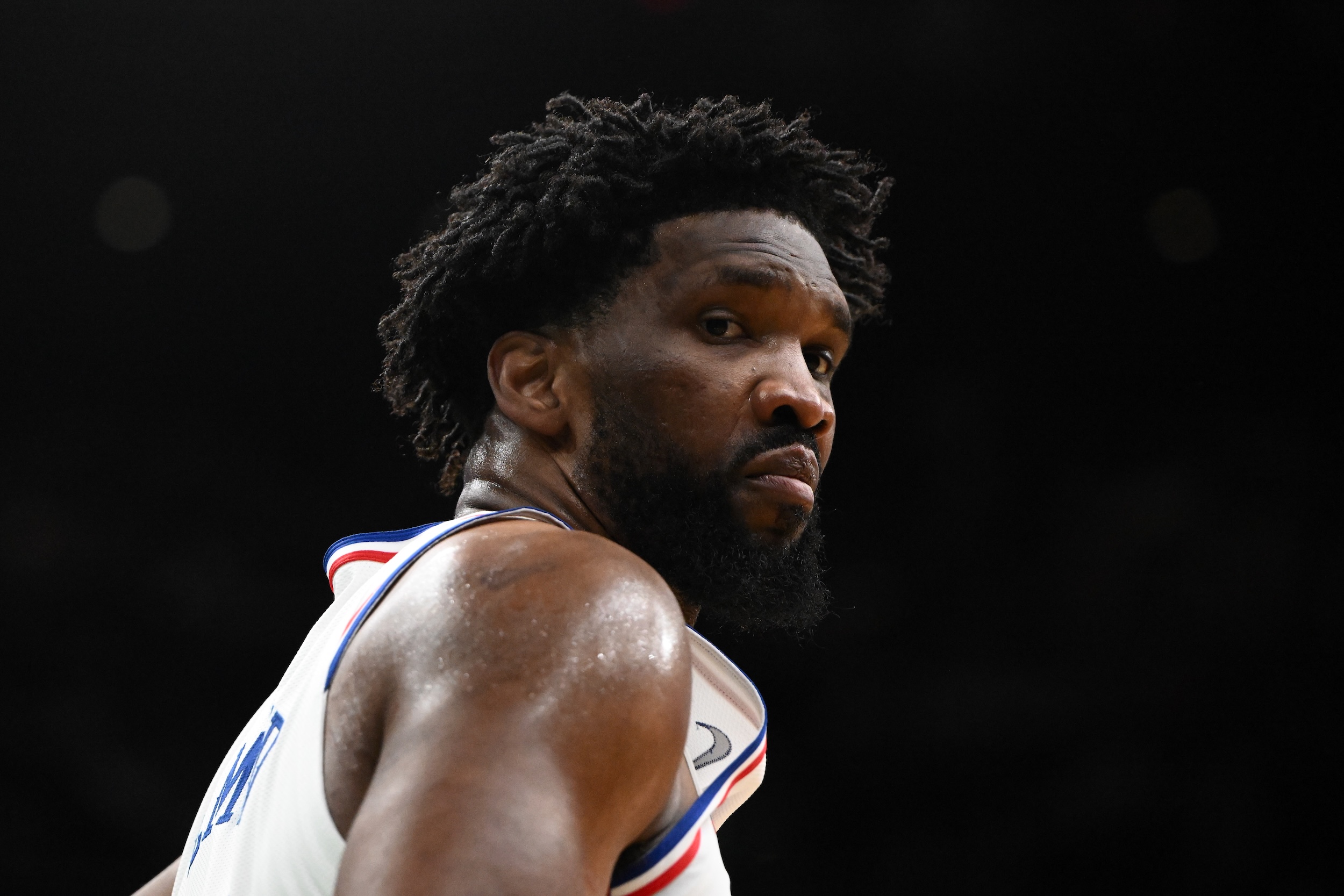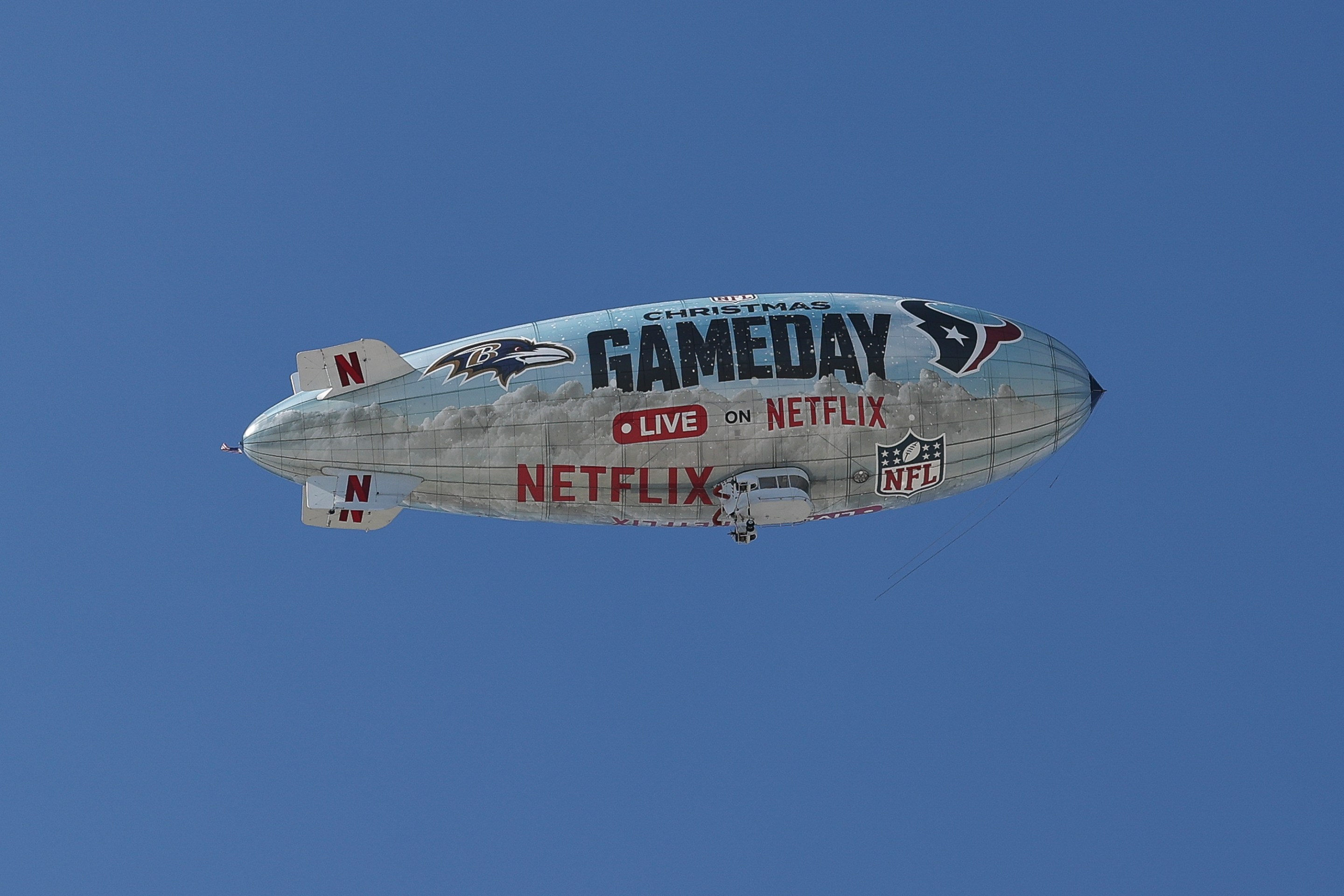Twenty-eight minutes into the game at Brentford, Arsenal keeper Aaron Ramsdale passed it off to center back William Saliba on the right side, beginning what would turn out to be Arsenal's most elegant goal of the season. Brentford is among the feistier mid-table teams, and their particular brand of feistiness is designed to make life difficult for top teams that want to build intricate attacks and smother their opponents with possession. Teams like Manchester United, who the Bees walloped 4–0, or, well, Arsenal. And yet, 13 passes later, after every Gunner on the pitch but Bukayo Saka had a kick, and Gabriel Jesus finished off the brilliant team goal with a confident header. Arsenal ran away with the game, 3–0.
Eight games into the Premier League season, and five months after their season-ending debacle that kept them out of the Champions League, it has become clear that Arsenal has turned a corner. They showed all the promise in the world against a relatively soft early schedule, then confirmed it this past weekend by smoking Tottenham. The youthful verve that both animated their resurgent 2021–22 and ended it on the sourest possible note has mellowed into straightforward excellence, and a slate of new additions this summer has rounded out a good team into a potentially great one. With Arsenal leading the league after eight games, it is not too early to ask: Why can't this be Arsenal's year?
Erling Haaland had no chill against Manchester United 💀
— B/R Football (@brfootball) October 2, 2022
(via @ManCity)pic.twitter.com/0zSFOFWZ5i
The single most significant upgrade Arsenal made this past offseason was bringing in Gabriel Jesus from Manchester City. As Arsenal manager Mikel Arteta, Jesus himself, and Defector Dot Com have all said, Jesus is playing in a completely different way at Arsenal. Pep Guardiola's tactical rigidity has helped Manchester City turn into one of the best teams in the world, though Jesus was always an uncomfortable fit, scoring a bunch of goals and winning a bunch of silverware yet doing so in a diminished capacity. Now, he is more than just a stationary object attached to the front of an attack. Under Arteta, he has been deputized to go basically anywhere he wants to on the pitch. Against Spurs, Jesus was omnipresent, popping up in his own box to win back possession from Richarlison, throwing himself forward at Hugo Lloris's goal, and drifting out to the side to help build attacks, creating space for his midfielders to run into. He is also doing all this running while scoring a team-high five goals, which is an impressive sign that his spatial wanderlust and tendency to spend a bunch of time away from the goal has sharpened rather than blunted him.
🔵 Haaland's acrobatic finish takes the prize 🔥#UCLGOTW | @Heineken pic.twitter.com/dut375twcQ
— UEFA Champions League (@ChampionsLeague) September 15, 2022
Gabriel Jesus is one of just three new additions into Arsenal's best XI, a lineup whose fresh successes with such little turnover speak to both the promise of the Mikel Arteta plan as well as the players' individual quality. William Saliba signed for the club three years ago, when he was 18, though he only just returned to London this year after three seasons on loan with a trio of increasingly good French clubs. Center forward and center back have probably been Arsenal's weakest positions over the course of Arteta's tenure and his de-Emeryification of the club. Alex Lacazette stopped being able to score, Pierre-Emerick Aubameyang fell out with Arteta, and the club was saddled with David Luiz, Sokratis Papastathopoulos, and Shkodran Mustafi in Arteta's first season. The team's youth movement started with replacing those slow old farts with Ben White and Gabriel, who rock, and now, moving White out to right back (like he's an American or something) and bringing in Saliba. At just 21 years old, the Frenchman is already one of the best defenders in the league. He's a steady, confident passer on the ball and an intelligent, athletic ballhawk in defense. His partnership with Gabriel gives Arsenal one of the burliest center back pairings in the Premier League, while Oleksander Zinchenko gives them essentially another attacking midfielder going forward. It's the best Arsenal backline in at least six years, and everyone is between 21 and 25, including backup fullbacks Takehiro Tomiyasu and Kieran Tierney.
Seven @PLinUSA matches, 11 goals.
— NBC Sports Soccer (@NBCSportsSoccer) September 17, 2022
Erling Haaland can't stop scoring! He doubles Manchester City's lead over Wolves. #MCFC
📺: @USA_Network & @NBCUniverso #MyPLMorning | #WOLMCI pic.twitter.com/ysZYdlAnhN
All that youth will have any Arsenal fan feeling optimistic about the foreseeable future, though it's not like they should ignore the present. After all, Arsenal is top of the league, head and shoulders above most of their rivals. Spurs trail by four points, Chelsea by eight, United by nine, and Liverpool by 11. The swing factor to Arsenal's season will be the degree to which their untested young players can provide them with meaningful depth. Fabio Vieira so far looks like God's honest truth, though showing real promise in the Portuguese league is a far less serious test than stepping in and replicating Martin Odegaard's calm excellence. Eddie Nketiah closed out last season on a high note, and can really move without the ball; doing so if Gabriel Jesus gets hurt is a much larger ask. Albert Sambi Lokonga has started to deliver on some of his promise, but it's still not clear if he can fully fill Thomas Partey's shoes, in the event, say, he had to miss time for, oh I don't know, some possible reason. If all those guys, and maybe even False Marquinhos, hit, there should be nothing stopping Arsenal from dreaming big. This could be their year.
Erling Haaland goals per touch UPDATE:
— The Analyst (@OptaAnalyst) October 2, 2022
one goal every 13.6 touches pic.twitter.com/De2iWJM9Cx
ERLING HAALAND IS ON PACE TO SCORE 60 GOALS THIS PL SEASON 🤯🔥 pic.twitter.com/spVGNr6O6C
— ESPN FC (@ESPNFC) October 2, 2022
ERLING HAALAND IS INEVITABLE. HIS FIRST #UCL GOAL IN A MAN CITY SHIRT 🤖 pic.twitter.com/vnDzTWYxDl
— CBS Sports Golazo ⚽️ (@CBSSportsGolazo) September 6, 2022
